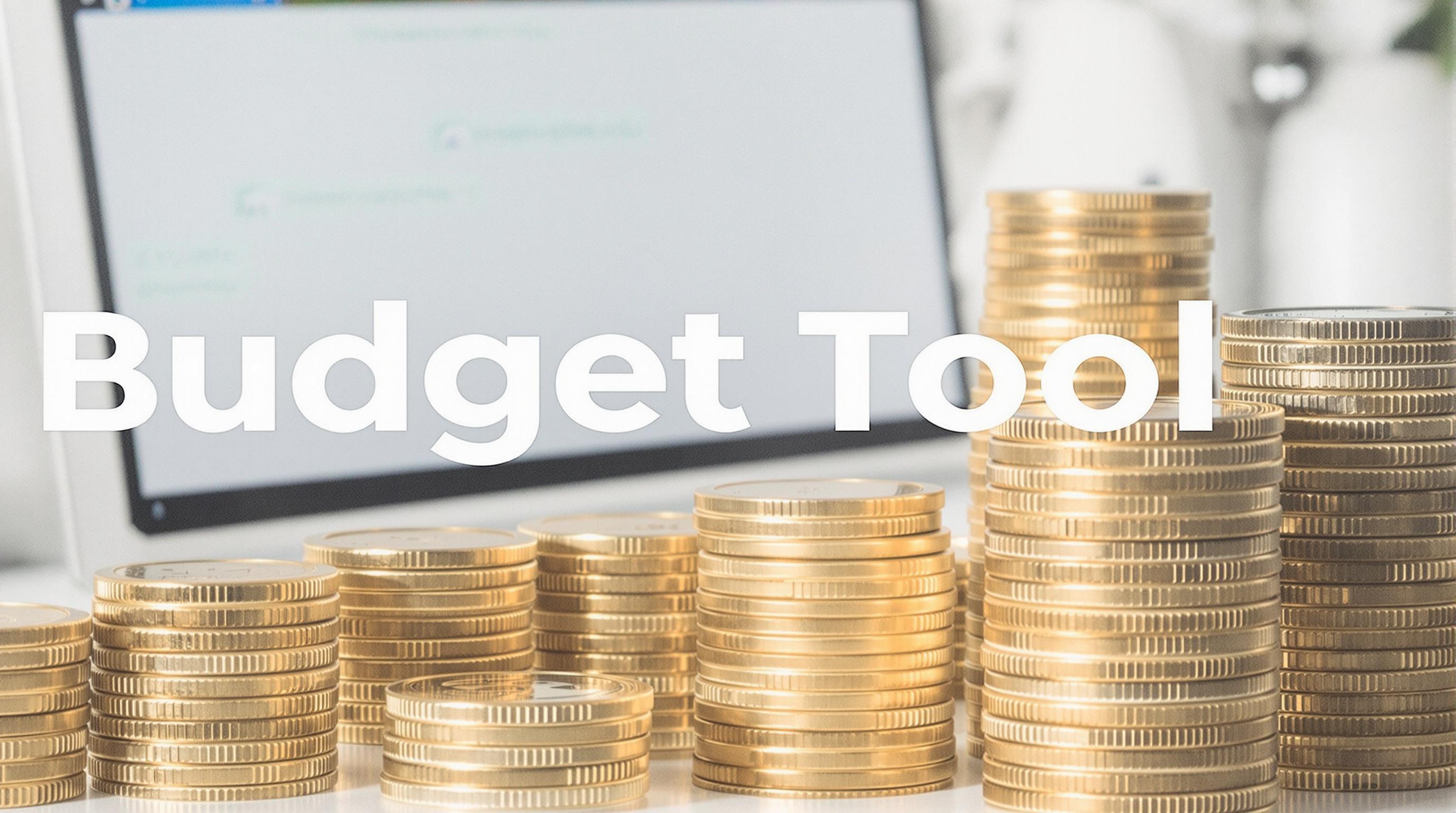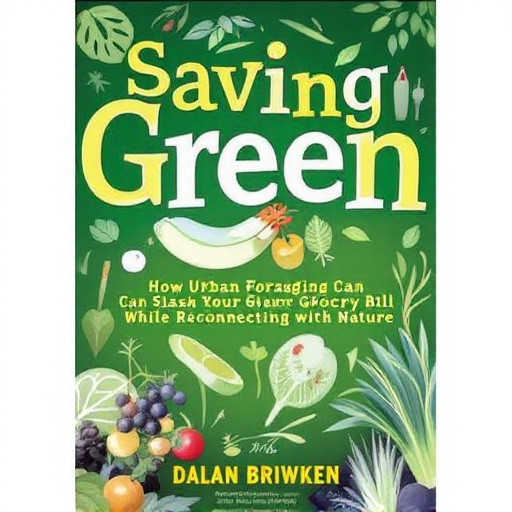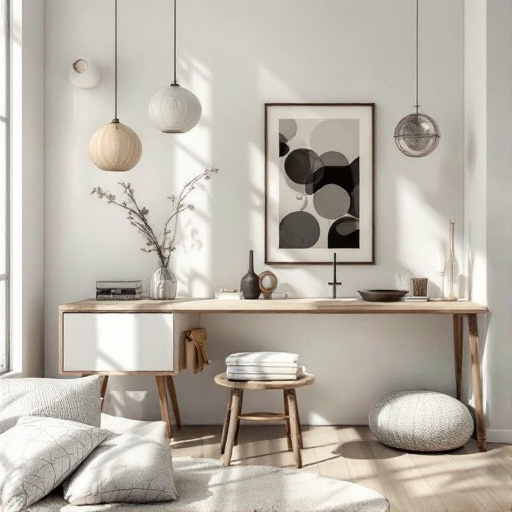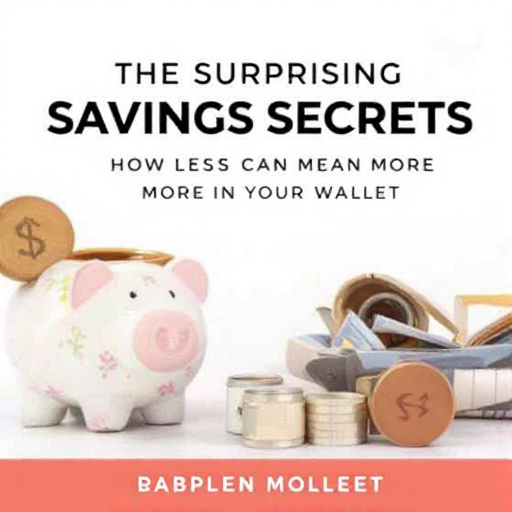Featured Articles
- Beyond Coupons and Budgets: Unveiling the Surprising Role of Sleep Patterns in Financial Well-being
- "Saving Green: How Urban Foraging Can Slash Your Grocery Bill While Reconnecting with Nature"
- Saving Space, Saving Cash: Uncovering the Financial Benefits of Minimalist Living and Decluttering Your Life
- The Surprising Savings Secrets of Minimalist Living: How Less Can Mean More in Your Wallet
- Top 8 Innovative Budget Tools Launched in the Last 5 Years: Expert Comparison & Reviews to Maximize Your Savings
Saving Space, Saving Cash: Uncovering the Financial Benefits of Minimalist Living and Decluttering Your Life
Saving Space, Saving Cash: Uncovering the Financial Benefits of Minimalist Living and Decluttering Your Life
Minimalist living is more than just an aesthetic choice; it's a transformative lifestyle that can save you both space and cash. This article will explore the financial benefits of decluttering your life and how embracing minimalism can lead to greater freedom and happiness.
The Financial Boon of Minimalism
First things first: why should we care about minimalism in today’s consumerist society? According to a survey conducted by the furniture retail company, IKEA, 47% of respondents indicated that they felt overwhelmed by their possessions. This suggests that clutter not only takes up space but also mental bandwidth, leading us to accumulate items that we don't truly need. Imagine turning that clutter into cash!
Cash in Your Clutter: Turning Junk into Cash Flow
One of the most exciting aspects of decluttering is the opportunity to sell items you no longer need. Websites like eBay, Craigslist, and Facebook Marketplace have made it easier than ever to turn your old clutter into cash. In fact, a study by ThredUp revealed that Americans have an estimated $33 billion worth of clothes that they aren’t wearing. Simply put, there’s money hiding in your closet!
Living Simply: A Case Study
Let’s look at a case study of Sarah, a 34-year-old marketing professional living in a busy urban area. After recently moving into a smaller apartment, she found herself overwhelmed with boxes of items she hadn’t touched in years. After spending a weekend decluttering, Sarah was able to sell over $500 worth of items she no longer used, including clothes, books, and even furniture. That windfall helped fund her next vacation, turning a daunting task into a worthwhile financial journey.
Less Finance, More Freedom
Decluttering does more than just lighten your physical load; it can also clear the fog from your financial life. By minimizing your possessions, you’re less inclined to buy what you don’t need. This “buy less, live more” philosophy can result in significant savings over time. According to a 2020 Consumer Expenditure Survey from the Bureau of Labor Statistics, the average American spends around $1,200 annually on non-essential items. Imagine what you could do with that money!
Maintenance Costs: Hidden Expenses of Clutter
On top of the initial buying cost, clutter comes with hidden expenses. Think about maintenance, storage, and even insurance for those items that take up space in your home. The American Institute of Stress reports that clutter can lead to anxiety, which might result in costs related to therapy or wellness. By choosing minimalism, you can cut down on these associated expenditures—saving not only money but also mental health costs.
The Environmental Benefits: Saving the Planet and Your Wallet
Adopting a minimalist lifestyle translates to financial benefits but has a ripple effect on the planet as well. Fewer possessions mean less waste and a lower carbon footprint. Research from the Global Footprint Network suggests that if we all adopted minimalist living principles, we could theoretically reduce our consumption by up to 30%, leading to substantial environmental savings. And let’s face it: being eco-friendly is becoming a significant consideration in global economics, potentially saving on tax incentives for sustainable living.
Fun and Frugality: The Joy of Simple Living
When you remove the clutter, you inadvertently create space for new experiences and memories. Living minimally allows you to invest more in experiences rather than material possessions. For example, that once-coveted $500 fashion item could easily fund a weekend getaway or an adventure with friends. Research indicates that experiences tend to bring more lasting happiness than possessions. A survey done by Eventbrite found that 78% of millennials prioritize spending on experiences over material goods.
Financial Freedom: A Paradigm Shift
There's an undeniable shift in how people perceive success. More individuals are recognizing that financial freedom doesn’t come solely from high salaries, but also from intelligent spending and mindful living. With the rise of influencers who promote minimalist lifestyles—such as Marie Kondo and The Minimalists—many are becoming more conscious of their consumption habits. As a 25-year-old writer, I can personally attest to the changes minimalism has made in my life and finances. Just as countless testimonials roll in, there’s a collective realization that true wealth often lies in simplicity.
A Humorous Take on Clutter
Let’s not forget the humor in decluttering! Have you ever thought about how many “as seen on TV” products you still have in your possession? You know the ones! The bacon press, the awkwardly shaped vegetable chopper—items that promised to change your life but instead just took up space in your kitchen drawer like unwanted guests. It’s time for a little laughter, and let’s face it: saying goodbye to these goofy gadgets is a freeing experience!
Steps Toward Minimalism: A Practical Guide
For those convinced (or at least mildly intrigued) by the potential savings: here’s a simple step-by-step guide. Start small! Take one room or even a single drawer at a time. Categorize items into keep, sell, donate, and recycle. Aim for a “one in, one out” rule to prevent future clutter buildup. As you declutter, consider utilizing apps like OfferUp or Poshmark to facilitate that profitable sale of items.
Setting Goals: The Minimalist Mindset
Establish clear financial and personal goals that align with your minimalist journey. These might include reducing your overall expenses by a specific percentage or saving for a dream trip or an emergency fund. Research from University College London suggests that setting such goals can significantly increase your likelihood of achieving them—so why not aim for “less while experiencing more” as a specific mantra?
Reflecting on Your Journey: Personal Growth and Savings
As we wrap up, it’s essential to recognize that decluttering your life doesn’t happen overnight. It’s a journey, one that often leads to personal growth and new insights. Research from the University of St. Andrews indicates that individuals who regularly engage in decluttering find a more profound sense of self-awareness and control over their lives. So, as you declutter your home, you’re also creating more mental and emotional space—a priceless benefit!
The Ripple Effect: Inspire Others
When you adopt this minimalist approach, you begin to inspire others in your circle to embrace the same. You may find yourself in conversations about cutting back and saving money. Your friends, family, and colleagues can catch onto the wave, creating a community of mindful spenders. According to a study from the Journal of Environmental Psychology, the contagious nature of minimalism and sustainability often leads to a collective mindset shift, amplifying your personal benefits.
Final Thoughts: Your Journey Awaits
Minimalist living doesn’t have to be intimidating; in fact, it can be downright entertaining and liberating! The financial benefits are clear—less clutter leads to fewer purchases and, ultimately, more cash in your pocket. You’ll find yourself with more time, space, and financial freedom. So why not begin the journey today? Happiness may just be a decluttered space away!




